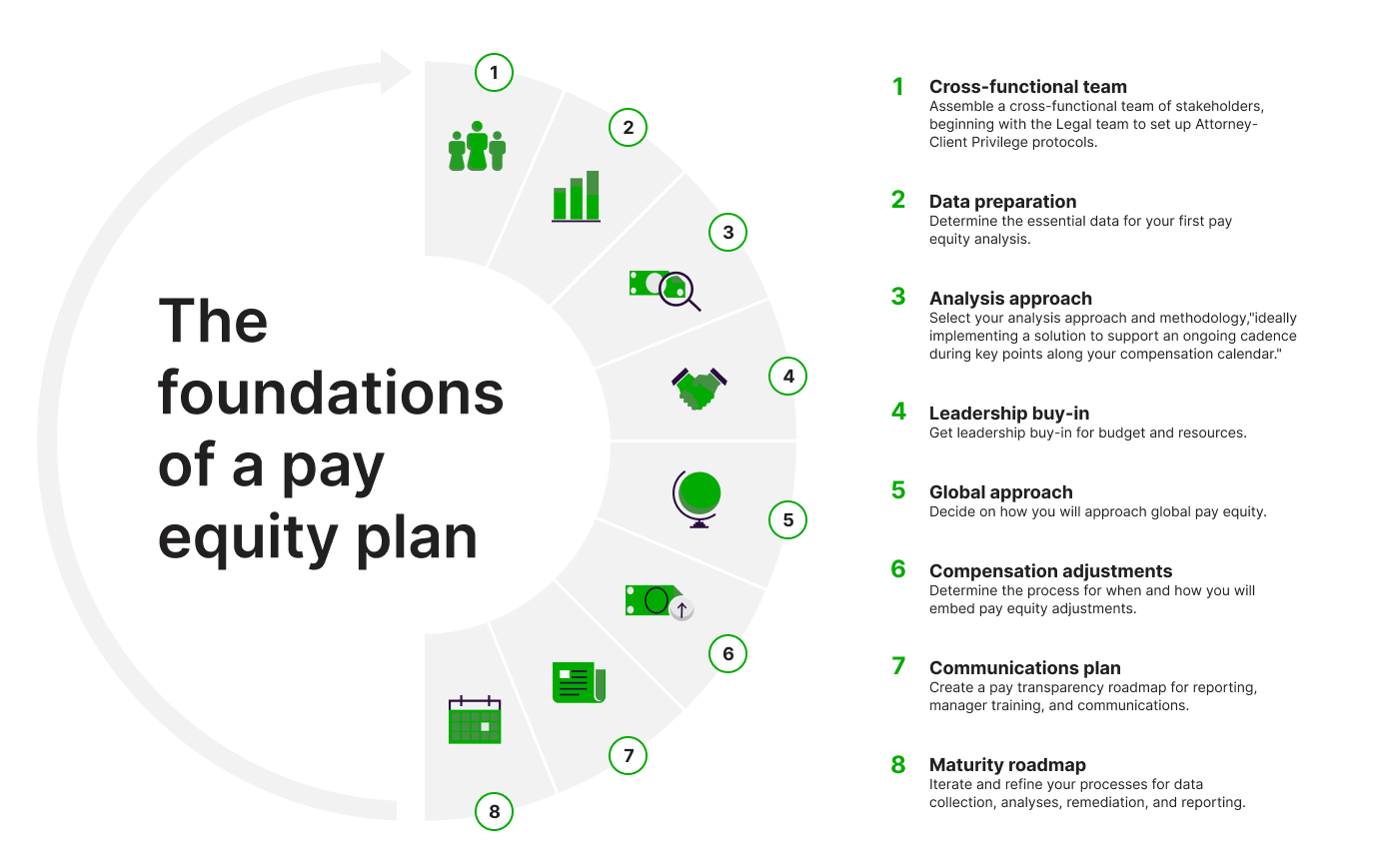Pay equity, also known as equal pay, is the principle that people should be paid the same amount for doing the same work or work of equal value.1 Despite significant progress, pay gaps persist, often based on factors such as gender, race, and ethnicity.2
The Gender Pay Gap
One of the most widely discussed pay equity issues is the gender pay gap.3 Women, on average, earn less than men for comparable work.4 This gap can be attributed to various factors, including:
- Occupational Segregation: Women are often concentrated in lower-paying occupations.5
- Discrimination: Women may face discrimination in hiring, promotions, and salary negotiations.6
- Caregiving Responsibilities: Women often shoulder a disproportionate share of childcare and eldercare responsibilities, which can impact their career progression and earnings.7
The Racial Pay Gap
Racial and ethnic minorities also experience pay disparities.8 People of color, particularly Black and Hispanic workers, often earn less than their white counterparts.9 Factors contributing to this gap include:
- Discrimination: Racial and ethnic bias can lead to lower pay and fewer opportunities.10
- Educational Disparities: Differences in educational attainment can impact earning potential.11
- Occupational Segregation: People of color may be concentrated in lower-paying occupations.12
Strategies to Promote Pay Equity
To address pay equity, organizations can implement the following strategies:
- Transparent Pay Practices: Share information about pay ranges and promotion criteria with employees.
- Regular Pay Audits: Conduct regular audits to identify and correct pay disparities.13
- Fair Hiring and Promotion Practices: Implement unbiased hiring and promotion processes.14
- Flexible Work Arrangements: Offer flexible work options to accommodate employees’ diverse needs.15
- Mentorship and Sponsorship Programs: Support the career advancement of underrepresented groups.
- Pay Negotiation Training: Equip employees with the skills to negotiate fair compensation.
- Employee Resource Groups (ERGs): Create ERGs to provide support and advocacy for marginalized groups.16
By taking proactive steps to address pay equity, organizations can create a more just and equitable workplace. This not only benefits employees but also contributes to a stronger and more successful company.




